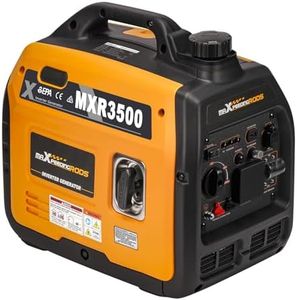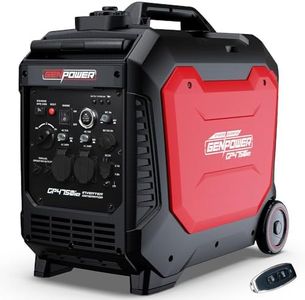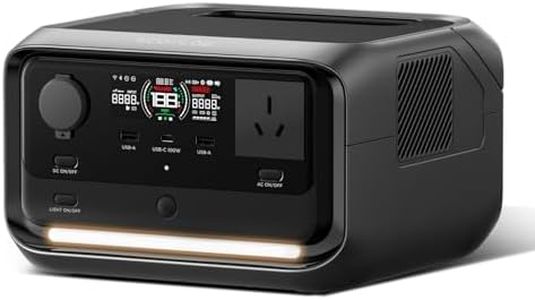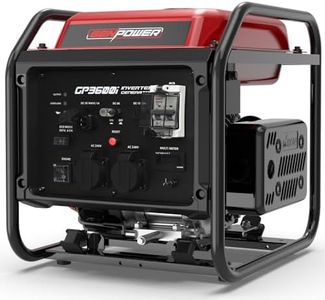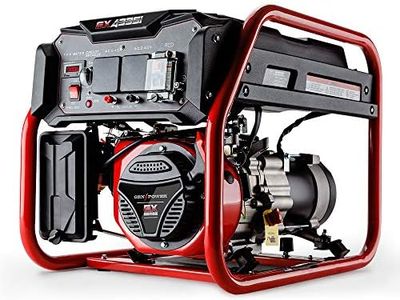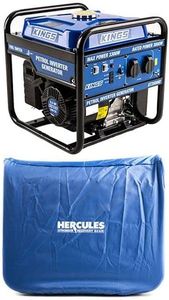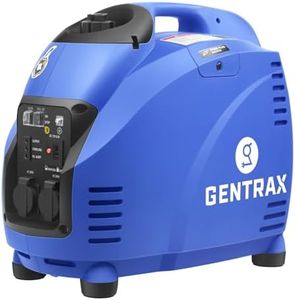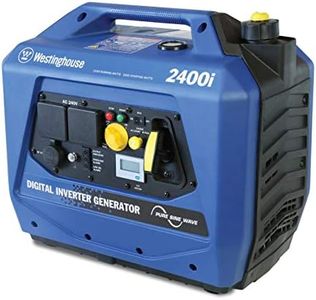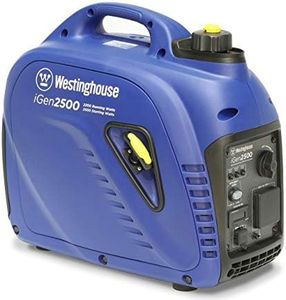We Use CookiesWe use cookies to enhance the security, performance,
functionality and for analytical and promotional activities. By continuing to browse this site you
are agreeing to our privacy policy
10 Best Quiet Generators
From leading brands and best sellers available on the web.By clicking on a link to a third party's website, log data is shared with that third party.
Buying Guide for the Best Quiet Generators
Choosing a quiet generator can significantly improve your comfort, whether you're camping, running a food truck, or providing backup power at home. The key is to balance low noise with adequate power and portability. Understanding the main specifications will help you match the right generator to your needs without dealing with unnecessary noise or inconvenience.Noise Level (Decibels)The noise level, usually measured in decibels (dB), tells you how loud a generator will be while it runs. This is important if you want peace and quiet, especially in campgrounds, residential areas, or jobs that require a low-noise environment. Noise levels below 60 dB are considered very quiet, similar to a regular conversation, while 60-70 dB is comparable to background office noise. Beyond 70 dB, it gets harder to ignore, especially in silent surroundings. Choose a generator with a lower dB rating if you’re using it close to people or at night. If you're not concerned about the environment or distance, a higher noise level might be acceptable.
Power Output (Watts)Power output, shown in watts, tells you how much electrical power the generator can provide. It's crucial because it determines what devices or appliances you can run at the same time. Smaller, quieter generators usually provide 1,000–2,000 watts, good for charging electronics or running a couple of lights. Mid-range options go up to 3,000–4,000 watts, handling more household items. Larger, noisier models offer even more. Add up the wattage needs of everything you want to power at once, and pick a generator that can handle this load comfortably.
Inverter TechnologyInverter generators have special built-in electronics that control the engine speed based on the power you’re using. This makes them especially quiet and efficient compared to traditional models. If you plan to power sensitive electronics like laptops, TVs, or medical devices, inverter generators are a safer choice because they provide more stable and cleaner electricity. Choose an inverter generator if quiet operation and electronics safety are important for you.
PortabilityPortability means how easy it is to move the generator to different locations. Options can range from lightweight models with handles, ideal for camping or tailgating, to heavier units with wheels for easier transport across yards or worksites. Consider how often you’ll need to move the generator and over what distances. If you need to carry it alone or fit it in a car, lighter, compact options are better. For stationary use at home, portability might not be as important.
Fuel Type and EfficiencyGenerators use different fuels, like gasoline, propane, or diesel, affecting both how quietly and how efficiently they run. Some models allow you to use more than one type (dual-fuel). Gasoline is widely available, while propane burns more cleanly and can be less noisy. Fuel efficiency means how long the generator can run on each tank. Look for a model that has a long runtime at 25%–50% load if you need uninterrupted power overnight or for extended periods.
Size and WeightThe overall size and weight of the generator affect not only portability but also how easy it is to store. Smaller units are easier to handle and fit into tighter spaces but may have less power and shorter runtimes. Larger units can deliver more power, but are heavier and bulkier. Think about where you’ll store the generator and how you’ll move it, then choose one that matches your physical and storage capabilities.

